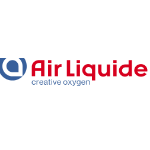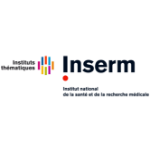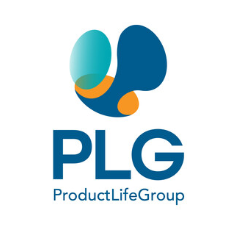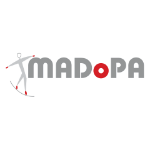Improving obstructive sleep apnoea diagnosis
The challenge
We spend approximately one-third of our lives sleeping. Obstructive sleep apnoea syndrome (OSA) is one of the most prevalent sleep disorders, affecting up to 21% of women and 31% of men worldwide.[1]
Severe OSA is associated with increased all-cause mortality.[2] Other adverse health outcomes associated with untreated OSA include cardiovascular disease and cerebrovascular events, type 2 diabetes, cognitive impairment, decreased quality of life, and motor vehicle crashes.[3]
Only 20% of OSA cases are diagnosed or treated.[4] OSA under-diagnosis is due to several factors including ineffective screening, fragmented care pathways and long waiting times.
OSA is diagnosed through sleep studies, usually conducted by certified sleep specialists. There are two types. One type is an overnight polysomnography performed in the sleep lab centre. The other type can be carried out at home using a portable monitor, which costs less and shortens waiting times. However, a negative result on this second time may necessitate a full overnight polysomnography.
Waiting times for sleep apnoea diagnosis vary globally due to demand exceeding capacity. In many countries, patients may wait for months before receiving a diagnosis. Meanwhile, sleep tests are often performed on individuals who are not eligible for treatment, resulting in the waste of valuable diagnostic resources.
The solution
Mitral, the start-up leading the Apneal project team, and their partners addresses this challenge by providing an effective new solution to diagnose OSA which is faster and cheaper than current methods. The team has created a simple AI-based sleep apnoea screening tool that uses a patient’s common smartphone comfortably taped on the pyjamas overnight.
Their solution is a product called Apneal which is user-friendly, cost-effective and requires no training, investment, logistics or hardware. It enables existing diagnostics resources to focus on high probability OSA patients, resulting in increased diagnosis and treatment for OSA via an optimised screening and diagnosis pathway.
The smartphone’s sensors record chest movements, heartbeats, and breathing sounds. Apneal’s proprietary and innovative artificial intelligence algorithms detect cardio-respiratory events and estimate AHI to determine next steps: ruling out OSA or moving forward with simplified or advanced diagnosis exams based on report data and patient phenotype. The whole process takes 24 hours.
Compared to other solutions for screening OSA, Apneal presents a great advantage of not using any hardware apart from the patient’s smartphone, which leads it to be cheaper and easier to use. While still obtaining similar performance than other solutions that do use external hardware.
With Apneal, patients will be able to rapidly test themselves for OSA in the comfort of their own home and can listen to audio recordings of their own pathological symptoms, such as snoring and breathing disturbances, which motivates them to continue the medical pathway.
The project team plans to bring Apneal to the market as a class IIa software medical device while preparing data and strategy to get reimbursement in European countries. Thanks to EIT Health support, the team will gather evidence to obtain the CE marking and reimbursement for the Apneal solution. The team is conducting a European multi-centric clinical study in accordance with the Medical Device Regulation in seven different investigator centres.
Expected impact
Mitral, the start-up leading the Apneal project, plans to define a new standard of care for sleep apnoea screening management based on scientific evidence and clinical data gathered in the project. It is expected in that the implementation and integration of OSA screening programmes using Apneal into clinical practice will positively affect all stakeholders.
Patients experiencing long-term symptoms of sleep apnoea will promptly access diagnostic tests to identify appropriate treatment options. Sleep specialists will involve primary care practitioners or General Practitioners for the patients who complain about related symptoms to make qualified referrals by using tools that ensure the triage or prioritisation of patients who are at higher risk.
First line physicians will have better awareness, education, support, and tools to enlarge screening at their level. The solution also promises to have a positive impact for payers as it promises to decrease healthcare utilisation and cost following the diagnosis of treatment of OSA.
The team also plans to launch educational activities to raise awareness of sleep apnoea among first-line physicians and promote best practices in its management. The goal is to create a network of informed healthcare professionals to help achieve Apneal’s mission.
Project Leaders
- Mitral
External Partners
- Digital Medical Hub
- Ethik IA
- Health Proof Helsinki
References
[1] Ferrie, J.E. et al. Sleep epidemiology—a rapidly growing field. Int J Epidemiol. 2011; 40(6): 1431-7.
[2] Balk, E.M. et al. (2011) Diagnosis and treatment of obstructive sleep apnea in adults [internet], National Center for Biotechnology Information. Available at: https://pubmed.ncbi.nlm.nih.gov/21977519/ (Accessed: 16 April 2024).
[3] Knauert, M. et al. (2015) Clinical consequences and economic costs of untreated obstructive sleep apnea syndrome, World journal of otorhinolaryngology – head and neck surgery. Available at: https://www.ncbi.nlm.nih.gov/pmc/articles/PMC5698527/ (Accessed: 16 April 2024).
[4] (2017) AASM. Available at: https://aasm.org/resources/pdf/sleep-apnea-economic-crisis.pdf (Accessed: 16 April 2024).
Partners

CLC/InnoStars: France
Partner classification: Business
Partner type: Core Partner
AIR LIQUIDE is the European Healthcare Service Integrator (1.2 million chronic disease pts with COPD, CHF, diabetes, parkinson...) working to improve patients' quality of life at home and to reduce hospitalizations and healthcare costs.
Air Liquide Sante International (ALSI)
Air Liquide Sante International (ALSI), 28 Rue d'Arcueil, 94250 Gentilly, France
Key Activities in Corporate Innovation
Med Tech, ICT, Consumer products
Key Activities in Social Innovation
Healthcare provision
Key Activities in Education
Healthcare professional education/training






CLC/InnoStars: France
Partner classification: Research, Tech Transfer, Clusters, Other NGOs
Partner type: Core Partner
Founded in 1964, the French National Institute of Health and Medical Research (Inserm) is a public scientific and technological institute which operates under the joint authority of the French Ministry of Health and French Ministry of Research. As the only French public research institute to focus entirely on human health, in 2008 Inserm took on the responsibility for the strategic, scientific and operational coordination of biomedical research. This key role as coordinator comes naturally to Inserm thanks to the scientific quality of its teams and its ability to conduct translational research, from the laboratory to the patient’s bed. Inserm plays a leading role in creating the European Research Area and boosts its standing abroad through close partnerships (teams and partner laboratories abroad). Inserm is active in many areas, such as Technologies for Health, Public Health (Cohorts, Healthcare systems), Infectious and chronic disease, Neurosciences, Cancer, and Genomics.
INSERM - French National Institute of Health and Medical Research
INSERM - French National Institute of Health and Medical Research, 101 Rue de Tolbiac, 75013 Paris, France
Key Activities in Corporate Innovation
Pharma, Med Tech, ICT, Diagnostics, Imaging, Nutrition
Key Activities in Social Innovation
Healthcare provision
Key Activities in Business Creation
Incubation, Technology Transfer
Key Activities in Education
Medical faculties, Healthcare professional education/training






CLC/InnoStars: Spain
Partner classification: Municipality / City, Hospital / University Hospital
Partner type: Core Partner
Servicio Madrileño de Salud (SERMAS) is the public health provider of the region of Madrid. SERMAS belongs to the Spanish National Health System and provides services to more than 6 million citizens through 38 hospitals and 424 primary care centres. SERMAS is an international reference for high-specialized medicine; it is equipped with state-of-the art stage technologies and characterized by high-qualified health professionals distributed in three domains: primary care, hospital care and emergency care through SUMMA 112. SERMAS has one of the best public primary care systems in good coordination with hospital care and social services in order to provide integrated care and achieve real impact on patients and families. In order to improve health research management and coordination, SERMAS works with 13 Research Foundations that support from the economic and administrative point of view research and innovation that originates at university hospitals, primary care, the emergency medical service and public health covering all areas of specialties and including communication and information technologic departments. These public research foundations focus on innovation and translational research, seeking for real outcomes in healthcare. SERMAS is committed to ensure the continuous improvement of quality.
Key Activities in Social Innovation
Healthcare provision, Payers
Key Activities in Business Creation
Technology Transfer, Testing & Validation
Key Activities in Education
Medical faculties, Healthcare professional education/training






CLC/InnoStars: France
Partner classification: Business
Partner type: Associate Partner
ProductLife Group is a life science service provider operating in 130 countries within the filed of regulatory affairs, pharmacovigilance, quality and pharmaceutical development. Our Purpose is to improve human health by delivering regulatory compliance services for the safe and effective use of medical solutions. Our Vision is to always improve the value we deliver to our team members and partners to become the leading global Life Sciences strategic partner for Regulatory affairs, Safety & pharmacovigilance, CMC & quality compliance, but also Medical Devices & Vaccines.
Key Activities in Research and Developement
Life science, Social science/health economics
Key Activities in Corporate Innovation
Pharma, Med Tech, Consumer Product, Nutrition
Key Activities in Business Creation
Business coaching






CLC/InnoStars: France
Partner classification: Research, Tech Transfer, Clusters, Other NGOs
Partner type: Associate Partner
MADoPA is a Living Lab specialising in co-creation, experimentation and evaluation of technologies and services for the elderly. MADoPA is a non profit association created in 2009, financially independent and involved in multiple European, national and regional projects.
MADoPA
MADoPA, 2 Rue Gustave Eiffel, 10430 Rosières-prés-Troyes, France


